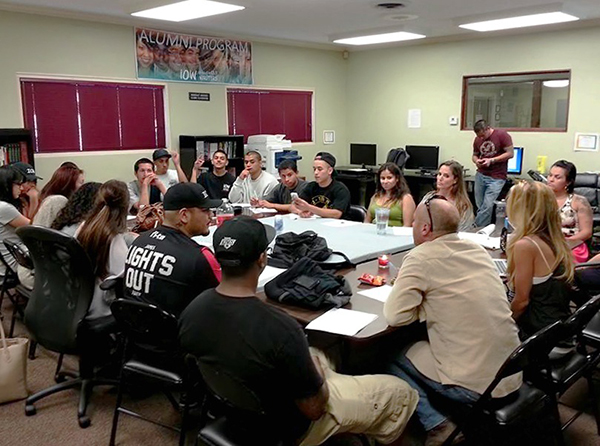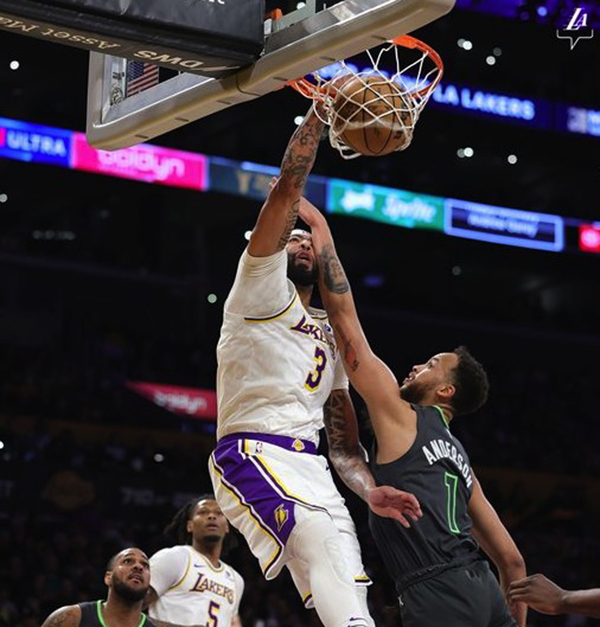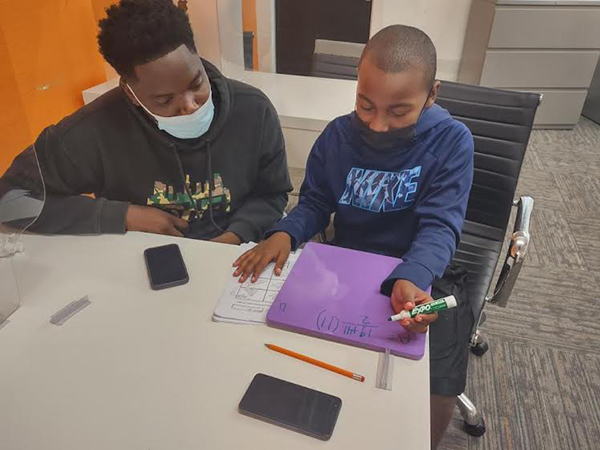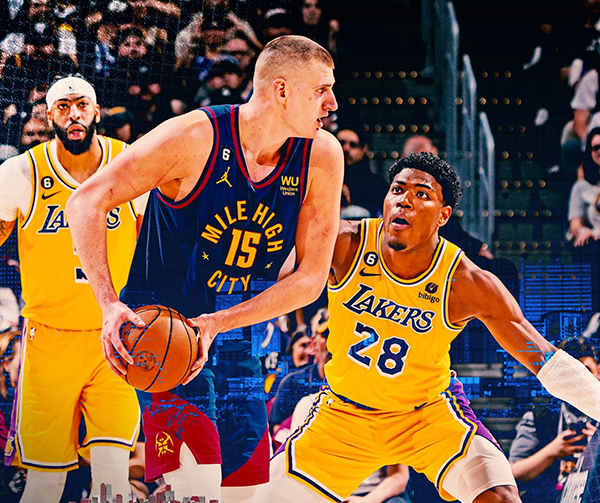The Q&A: L.A. County fire chief never wanted to be a firefighter
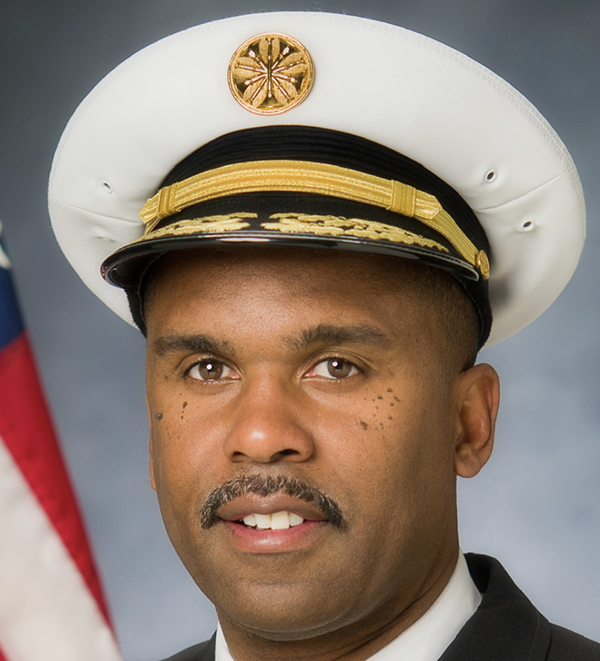
By Darlene Donloe
Contributing Writer
When the Los Angeles County fire chief says he “never wanted to be a fireman,” because of racism, it’s a bit shocking and causes one to pause.
Just how did someone who never wanted anything to do with firefighting, manage to rise to the pinnacle of his profession?
Chief Daryl Osby will tell you that today, after 11 years of leading one of the busiest fire departments in the country, he is still just as fired up about the position as he was more than a decade ago.
From the beginning, Osby, who is performance driven, said he has been determined to run an “efficient and effective operation.”
The ninth person to hold the office, Osby, who became a firefighter in 1984, leads a department that has roughly 3,400 uniformed personnel and 106 fire stations, while overseeing the delivery of fire suppression and life safety services to more than 4.1 million residents and commercial businesses in 59 cities and all unincorporated areas of Los Angeles County, along with the city of La Habra in Orange County.
Other than watching him give the occasional sound bite on television, Osby, 60, is an unknown quantity. Not much is known about the tall, handsome, mustachioed chief other than he has managed to successfully do his job.
Chief Osby, who was born in San Diego, is in his second marriage and has two daughters from his first marriage, Stephanie 36, and Nicole, 31.
I recently caught up with the chief to get a sense of the man entrusted with carrying out the day-to-day tasks of running the Los Angeles County Fire Department.
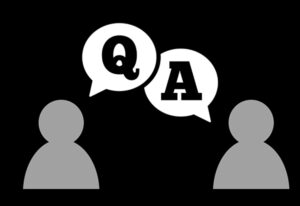
DD: What do you see as your role as L.A. County fire chief and how has your approach to your job changed over the years?
DO: My role really is to, at a high level, be strategic. To plan strategically as it relates to the mission of this department. We have 5,000 working for us. That they all work effectively as a team to execute their mission. That’s my primary responsibility. I’m always thinking about the safety of everyone in the department. I want to be the leader and represent the organization publicly and give confidence to the citizens so that they know we are utilizing their investment. We want to give them the confidence that we are using their public funds in a good way and that they are getting good service.
DD: Why are you the right person for this job?
DO: I was the most qualified at the time when the previous chief retired. My demonstrated skill sense as it relates to leadership and the relationships that I developed and the reputation that I developed throughout my career, as far as doing what’s right for our employees and what’s in the best interest of the department and our citizens, and being responsible and responsive, I felt I was the right person when I got appointed.
DD: What have you learned about yourself since becoming the chief? Do you like who you’ve become?
DO: Good question. What I learned is, first of all, it’s a crazy day job. I learned that when you’re in this office by yourself — you’re ultimately responsible. It’s a lonely position. I learned to pace myself and be an extremely effective listener, to understand a person’s perspective. I’ve learned to be strategic and the importance of relationships and picking the right people around me. At some point, you have to be tough and stern and speak truth.
What I’ve learned is that in my day job it’s not just a one-approach cookie-cutter way of leading a dynamic department. You have to be extremely flexible. It made me a better person. I’m definitely a better leader today than I was a decade ago. I’m way more confident now than I was then. I’m better because of my understanding of how to run an organization.
DD: Why did you want to be a firefighter?
DO: I didn’t. Initially, I didn’t. The reason is I have a dad that’s in the fire service. Growing up in the 60s and 70s and watching my dad come home and the racist things that occurred to him and his profession and how it made him feel, I thought in my mind there is no way I wanted to be a firefighter. Recognizing that it’s not just in fire service, it’s in our society. Well, 38 years later, I’m still here. It’s been an amazing career. I didn’t get super-rich, but it’s satisfying. I can’t think of any other career that would be more fulfilling than what I chose.
DD: So, if you didn’t want to be a firefighter, what did you want to be?
DO: I was going to be a corporate attorney. That was my original career choice.
DD: What did you expect from joining the fire department and what did you actually get?
DO: I expected that it would be a rewarding career. I thought it would be exciting and it has been. The diversity of the organization. Trying to relate to everyone. It’s a daily challenge. You always have to be ahead of the game.
DD: Are Black firefighters given the same level of respect within the department and the community — like their white counterparts? If not, what are you doing about it?
DO: For my dad in the 60s and 70s, it was blatant. The impact it had on my dad and my household, I didn’t want to be a firefighter. All those ‘isms,’ like racism, I can’t say they don’t exist but one of the things while coming through the ranks was to be outspoken. Coming through the ranks, I always tried to do what was right. The most rewarding thing I did, it wasn’t the most popular, was becoming a member of the Stentorians, an organization formed by African-American firefighters. I was the president of that organization in the 90s.
DD: When you reflect on your career, what could you have done better?
DO: Personally, I would have gotten my master’s degree. There is a nexus between education experience and technical training. Through my almost 40 years of experience, I probably have a Ph.D. in that now.
Professionally, to really represent ideas that create fairness and equity across the spectrum. I sometimes address things internally — and you just get tired. I try to mentor and develop people. If I could have mentored and developed other people better I would have done that. I’m still doing it. It’s an ongoing process and it will never end.
Also, professionally, is to be more of a spokesperson for our communities. There are a lot of African-American boys and girls who would like to look up to a firefighter or someone like me, or in other professions to create environments where they can be successful in their dreams. We don’t always do that as a society.
Unfortunately, a lot of our young men don’t have ample opportunities so they make bad choices. The justice system is not designed in our favor, so they may have a criminal record or don’t have the experience or the exposure to have an opportunity to get in certain professions, so they don’t. I do what I can, but if I had the opportunity, I’m only one person, but I would have done more. My life isn’t over. I still can do more.
DD: Are you ever not the chief?
DO: It’s a 24/7 job. Now that I’m here, it’s a calling. It’s so dynamic. You have to want to do it 24/7. I’m thinking about our people. I’m wired at the end of the day. I wake up thinking about things. I’m never far from this.
“The Q&A” is a new feature of Wave Newspapers asking provocative or engaging questions of some of L.A.’s most popular newsmakers or celebrities.
Darlene Donloe is a freelance reporter for Wave Newspapers who covers South Los Angeles. She can be reached at ddonloe@gmail.com.

